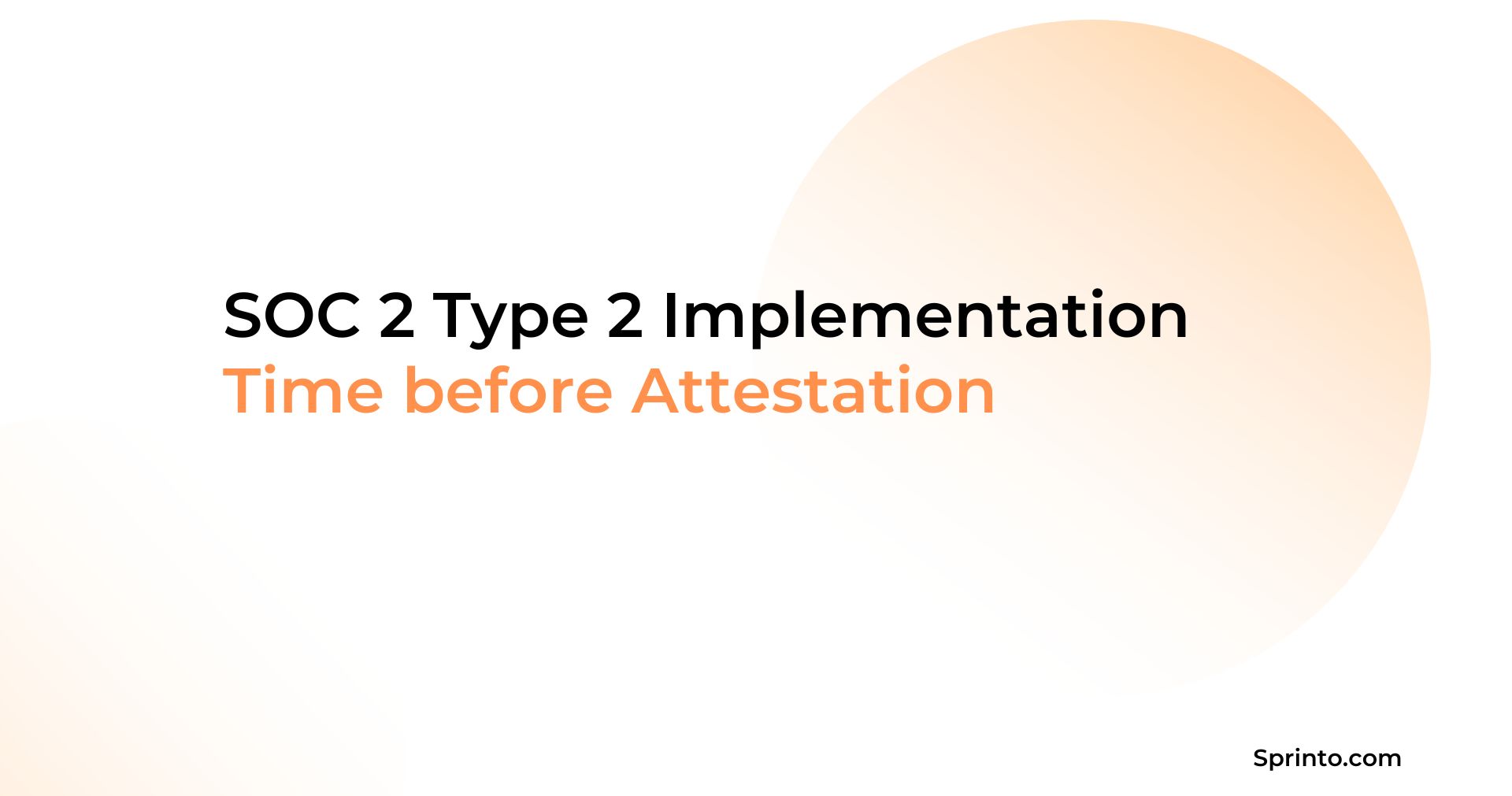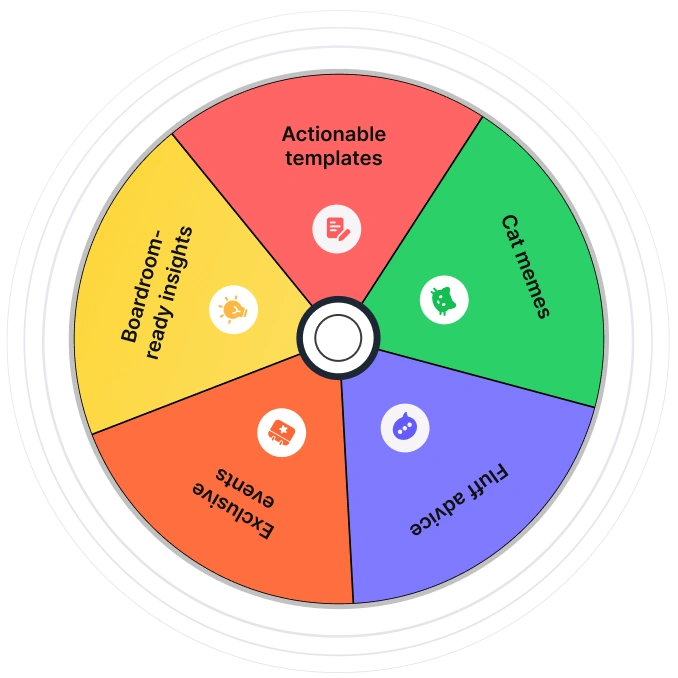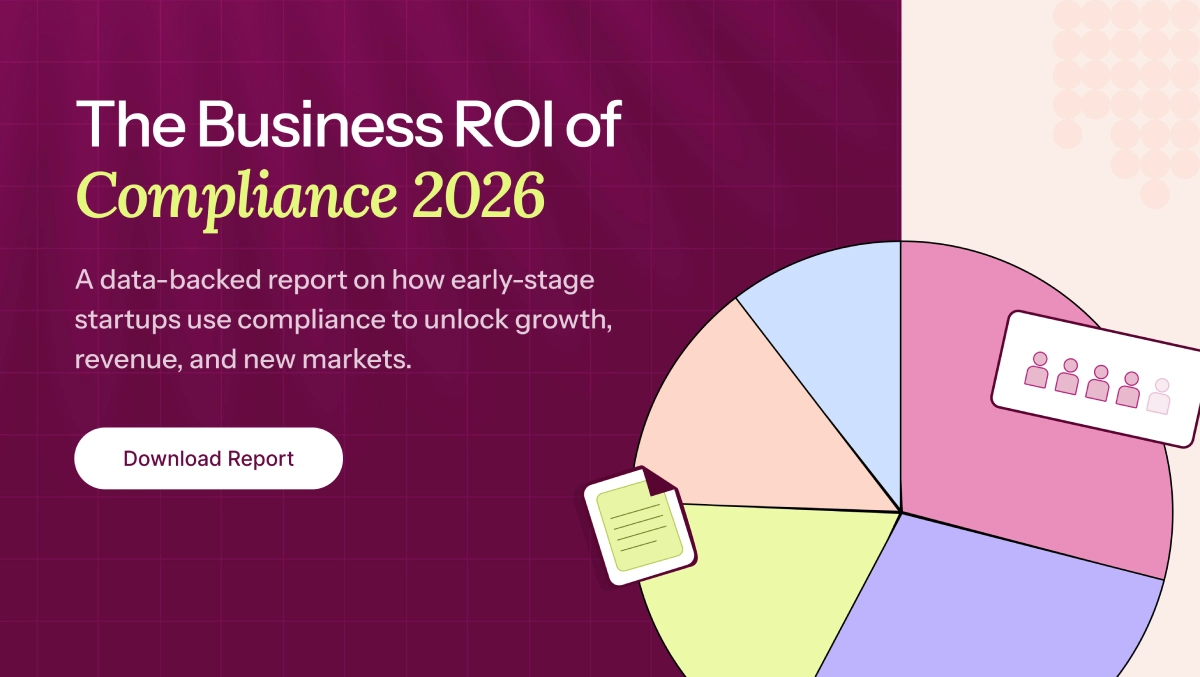The initial SOC 2 Type 2 implementation typically takes 4 to 12 months before reaching attestation, depending on factors like organizational readiness, scope, existing controls, and available resources. Smaller startups with simpler environments and automated tools may complete it closer to the 4-month mark, while mid-size or enterprise companies with complex systems might take up to a year or more.
This timeline includes everything from defining the scope, implementing the necessary controls, running the audit period (observation window), and finally completing the independent attestation by a CPA firm. The attestation itself does not start until the observation period ends, which typically lasts 3 to 12 months.
Understanding the SOC 2 Type 2 Implementation Timeline
SOC 2 Type 2 compliance is not a one-size-fits-all project. Here’s a closer breakdown of the phases that contribute to the overall timeline.
1. Readiness Assessment (2–6 weeks)
Before implementing any controls, companies usually undergo a readiness assessment. This phase includes:
- Identifying scope (systems, services, data)
- Gap analysis of existing security and compliance posture
- Defining Trust Services Criteria (TSC) relevant to your business
2. Control Implementation and Documentation (1–3 months)
This is when you put in place the policies, procedures, and tools needed to meet SOC 2 requirements:
- Access controls
- Security monitoring
- Incident response plans
- Vendor risk management
- Logging and auditing mechanisms
Automation tools and platforms like Sprinto can significantly reduce the time spent in this phase.
3. Observation Period (3–12 months)
The most time-consuming part of SOC 2 Type 2 is the observation or audit period:
- You must operate your SOC 2 controls continuously for a period (often 6 months, but some go as short as 3 months).
- During this time, auditors gather evidence to prove that controls were working consistently.
4. Audit and Attestation (1–2 months)
After the observation window:
- Independent auditors review the collected evidence.
- Draft and finalize the SOC 2 Type 2 report.
- Provide formal attestation on the operational effectiveness of your controls.
Save 80% of man-hours spent on SOC 2
Factors That Influence Timeline
- Company size and complexity: More users, systems, and integrations mean more controls to implement and monitor.
- Tooling and automation: Manual processes slow things down. Using platforms like Sprinto can accelerate compliance dramatically.
- Resource allocation: Having dedicated security or compliance teams speeds up implementation.
- Audit firm availability: Scheduling with an auditor can introduce delays if done late in the process.
Timeline Comparison Table
| Phase | Time Range | Description |
|---|---|---|
| Readiness Assessment | 2–6 weeks | Scope definition and gap analysis |
| Control Implementation | 1–3 months | Policies, tools, and practices setup |
| Observation Period | 3–12 months | Continuous operation of controls |
| Audit and Attestation | 1–2 months | Evidence review and final report |
| Total Implementation Time | 4–12 months | End-to-end timeline varies by org size and readiness |
Sprinto’s Role in Accelerating SOC 2 Type 2 Compliance
Sprinto helps teams cut down the SOC 2 timeline significantly by:
- Automating evidence collection and control monitoring
- Providing pre-built control libraries mapped to SOC 2
- Offering audit-readiness support and workflows
- Reducing manual overhead during both the implementation and audit phases
With Sprinto, many startups complete their SOC 2 Type 2 readiness in under 6 months, some in as little as.
Also, read a complete guide on how to get SOC 2 compliant.
Vishal V
Vishal, Sprinto’s Content Lead, masterfully weaves nuanced narratives and simplifies convoluted compliance topics with seasoned expertise. His perennial curiosity fuels his pursuit of fresh angles in every piece. Off-work, he’s an avid photographer, birder and a music buff, he blends expertise and exploration seamlessly in work and life.
Explore more SOC 2 articles
SOC 2 Compliance Overview
SOC 2 Preparation and Documentation
SOC 2 Audit and
Reporting
SOC 2 Differences and Similarities
SOC 2 Updates & Management
SOC 2 Industry-Specific Applications
research & insights curated to help you earn a seat at the table.














